Breakouts will be interactive, with participants encouraged to ask questions, provide links to relevant research and take part in polls.
Focus Areas
Biodiversity Spotlight: Human solutions for tackling biodiversity loss
This session is being presented in partnership with LEAP – Zoos Victoria’s business consultancy for leadership, environment, animals, and purpose.
With nature declining at concerning rates, threatened species extinctions increasing and ongoing human-driven threats to the environment, our approach to conservation needs some shaking up. The scale of impact and the widespread consequences of climate change is demanding we tackle these issues in ways we haven’t done before.
In the lead up to the vital UN Summit on Biodiversity to be held in May, we need bravery, boldness and courage in trying new techniques, introducing new scientific disciplines and reaching new audiences of people ready to be inspired to help. UN Secretary-General Antonio Guterres said last year that by “living in harmony with nature, we can avert the worst impacts of climate change and recharge biodiversity for the benefit of people and the planet”.
We have learned a lot from the events of 2020 with many around the world experiencing climate change impacts firsthand with catastrophic bushfires and floods at unprecedented scale, as well as a global pandemic that touched everyone. We have a moment of change to harness after living through such disruption to our daily lives. Nature needs humans to protect and recover and humans need nature to survive and recover. Our interconnectedness with nature has never been more important to value.
This panel discussion will bring together thought leaders, conservationists and scientists to discuss what 2020 taught us and how we can turn these events into an opportunity to transform our relationship with nature, reconnect those who have lost touch with its beauty and work to bring the magic of planet earth and all its inhabitants to the forefront of our thinking.
Useful Resource: Making Peace with Nature
Session Host
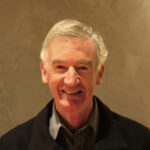
Graham Hunter, Former CEO, Greening Australia (Victoria)
Graham, an environmental specialist, worked for the OECD in France and the USA before taking up senior positions with the Environment Protection Authority and Victorian Government Departments responsible for the management of natural resources and the environment.
Graham, the inaugural CEO of Greening Australia (Victoria), led UNAA delegations to the UN Climate Conferences in Copenhagen (2009) and Paris (2015) and to the UN Conference on Sustainable Development in Rio de Janeiro in 2012.
Speakers
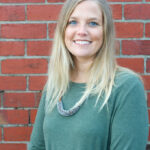 Dr Sally Sherwen, Director, Wildlife Conservation and Science, Zoos Victoria
Dr Sally Sherwen, Director, Wildlife Conservation and Science, Zoos Victoria
Sally leads a dynamic team of scientists and specialists that develop and deliver strategic programs in conservation, animal welfare, education and environmental sustainability. Sally has a PhD in Animal Welfare Science and is a member of the Victorian Government’s Animal Welfare Advisory Committee, providing advice on Animal Welfare issues relating to Victorian wildlife, agriculture, pets and zoos.
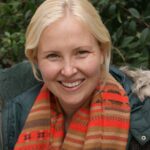
Rachel Lowry, Chief Conservation Officer, WWF Australia
Rachel leads a team at WWF Australia focused on delivering transformational conservation results across Healthy Land and Seascapes, Threatened Species, Climate and Food Security. Rachel has been an advisor to Australia’s Threatened Species Commissioner for the past five years and currently sits on Advisory Boards for both Parks Victoria and the University of Melbourne. Rachel’s current focus at WWF Is to lead an innovative, solution-focussed team working to secure a New Deal for People and Nature.
 Trent Clews-De Castella, Co-Founder, Phoria
Trent Clews-De Castella, Co-Founder, Phoria
Breaking away from the gaming sector, PHORIA uses the storytelling power of immersive technologies, like Augmented Reality and Virtual Reality, to raise awareness for social impact causes aligned with the In SDGs. In 2019, REWILD Our Planet used social Augmented Reality experiences to encourage people to restore balance to the natural world. Developed in partnership with Netflix, WWF, Google, and the ArtScience Museum, this installation highlighted how extensively human activity has damaged wildlife and wild places. In 2020, PHORIA launched ecosphere, an award-winning VR nature series that transports viewers into the wildest places on earth. ecosphere has generated more than 1 million views, demonstrating the ability to reach a wide international audience through Virtual Reality.
Sustainable Development Goals
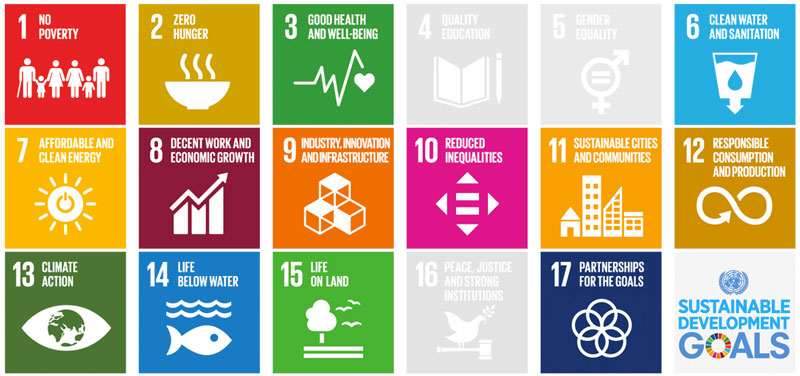
Wiyi Yani U Thangani – Women’s Voices
Presented in partnership with the Australian Human Rights Commission
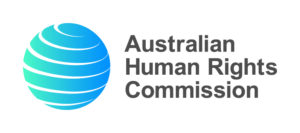 In December 2020, the Australian Human Rights Commission released the Wiyi Yani U Thangani – (Women’s Voices): Securing our Rights, Securing our Future Report which expresses the views and ideas of more than 2000 First Nations women and girls of all ages and across every state and territory.
In December 2020, the Australian Human Rights Commission released the Wiyi Yani U Thangani – (Women’s Voices): Securing our Rights, Securing our Future Report which expresses the views and ideas of more than 2000 First Nations women and girls of all ages and across every state and territory.
An accompanying Community Guide sets out the major findings and cross-cutting themes of the consultation and provides an overview of the reports comprehensive plan for structural reform.
June Oscar AO, Aboriginal and Torres Strait Islander Social Justice Commissioner travelled to some 50 urban, rural, and remote locations to hear directly from First Nations women and girls about their needs, issues and aspirations and what ought to happen in order to enshrine their human rights now and into the future. The consultation showed clearly that a business-as-usual approach will not do this.
This session will discuss the next steps involved in implementing the key findings and recommendations of the Wiyi Yani U Thangani report. The session will consider the multiple forms of collaborations and partnerships needed to ensure that the ideas expressed during this major consultation are translated into meaningful change.
In partnership with First Nations women and girls, the Australian Human Rights Commission will work with governments, community organisations and various stakeholders to identify and define the actions and structural changes —in law, policy, operational approaches, and institutional arrangements— required to achieve the outcomes women and girls are calling for. This second stage of work responds to the priorities and aspirations of First Nations women and girls in order to achieve First Nations gender justice and equality in Australia.
Session Host
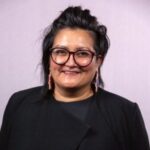 Taryn Lee, Director, PwC Indigenous Consulting
Taryn Lee, Director, PwC Indigenous Consulting
Taryn is a proud Yawuru woman from Broome. Taryn has extensive experience and leadership in social policy and justice reform. She is currently a Director at PwC Indigenous Consulting. Taryn has also held executive roles in the public sector leading the design and development of social policy and programs that have been central to positioning Aboriginal self-determination to improve outcomes for Aboriginal peoples. The focus of Taryn’s working career has been dedicated to working in social policy and justice, predominantly in the public sector, to ensure that the voice and experience of Aboriginal people is central to policy development.
Speakers
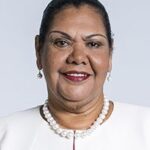 June Oscar AO – Aboriginal and Torres Strait Islander Social Justice Commissioner
June Oscar AO – Aboriginal and Torres Strait Islander Social Justice Commissioner
June Oscar AO is a proud Bunuba woman from the remote town of Fitzroy Crossing in Western Australia’s Kimberley region. She is a strong advocate for Indigenous Australian languages, social justice, women’s issues, and has worked tirelessly to reduce Fetal Alcohol Spectrum Disorder (FASD).
June has held a raft of influential positions including Deputy Director of the Kimberley Land Council, chair of the Kimberley Language Resource Centre and the Kimberley Interpreting Service and Chief Investigator with WA’s Lililwan Project addressing FASD
June began her five-year term as Australia’s Aboriginal and Torres Strait Islander Social Justice Commissioner on April 3, 2017.
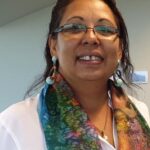 Janine Dureau, Kimberley Service Development
Janine Dureau, Kimberley Service Development
Janine is a proud Nyginka woman who was born and raised in Derby. Now based in Broome, she consults to Aboriginal corporations and communities throughout the Kimberley and around Australia.
Janine’s professional experience includes almost 30 years’ working in Aboriginal Business Affairs (State and Commonwealth governments and Aboriginal organisations).
She is passionate about building the capacity of Aboriginal communities and organisations. Working at the strategic level, Janine facilitates collaborative engagement and focuses on planning, leadership and governance development.
Sustainable Development Goals
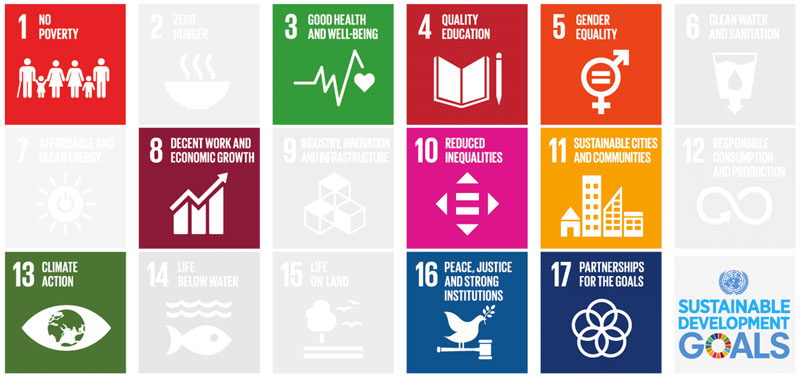
Refugees and Asylum Seekers
The UN Global Compact on Refugees provides a blueprint for a stronger, fairer, more predictable and sustainable international response to refugees built on responsibility and burden-sharing.
How can we partner together to ensure that Australia moves towards new policies based on this comprehensive response framework for large-scale refugee movements globally?
Useful Resources:
Bridging the Divide on Refugee Policy
Refugee Legal’s Corporate Clinic Presentation to the UN
Refugees Advocate for their Rights
Session Host:
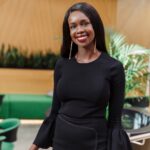 Lorna Deng, Co-Founder, DivTal
Lorna Deng, Co-Founder, DivTal
Lorna is the co-founder of DivTal, an online job platform that connects employers with culturally diverse talent. Having graduated from Monash University in 2013, Lorna started her career in Corporate Responsibility and then moved into Human Resources. Lorna is regularly invited to speak about leadership, purpose, diversity & inclusion and the future of work. She is a member of various diversity and inclusion committees and networks where she champions cultural diversity and is a mentor to young migrants in Melbourne.
Speakers
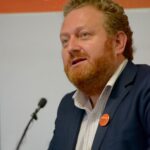 David Manne, Executive Director, Refugee Legal
David Manne, Executive Director, Refugee Legal
David Manne is a human rights lawyer and Executive Director of Refugee Legal. He has worked in various capacities assisting refugees and asylum seekers for over 20 years. Since 2001 he has lead Refugee Legal’s legal teams in successfully arguing 10 out of 10 landmark High Court challenges. David has been appointed to the UN High Commissioner for Refugees Advisory Board of Eminent Persons. He is regularly invited to present at the UN High Commissioner’s Dialogue on Protection Challenges.
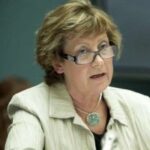 Erika Feller, Vice-Chancellor’s Fellow, University of Melbourne, UNAA Goodwill Ambassador for Refugees and Asylum Seekers
Erika Feller, Vice-Chancellor’s Fellow, University of Melbourne, UNAA Goodwill Ambassador for Refugees and Asylum Seekers
Erika is the former Assistant High Commissioner (Protection), one of the four top management positions with the United Nations High Commissioner for Refugees. This was the culmination of a 26-year long career with UNHCR and had been preceded by 14 years’ service as an Australian diplomat, in Canberra and overseas. She is broadly respected as a refugee law advocate who has been widely published.
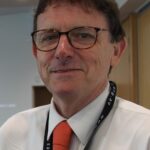 Paul Power, CEO, Refugee Council of Australia
Paul Power, CEO, Refugee Council of Australia
Paul leads this national umbrella body’s policy development and public education on refugee issues and its advocacy with the Australian Government, international networks and UNHCR. Since 2012, he has served in leadership roles with the Asia Pacific Refugee Rights Network, currently being a board member and chair of its Australia, New Zealand and Pacific Working Group.
Under Paul’s leadership, RCOA has been strongly committed to creating opportunities for people who have been refugees to take more prominent roles in national and international discussions on refugee policy. In 2018, RCOA helped to support the first Asia-Pacific Summit of Refugees and the first Global Summit of Refugees and now works closely with the independent refugee-led networks formed from those meetings.
Sustainable Development Goals
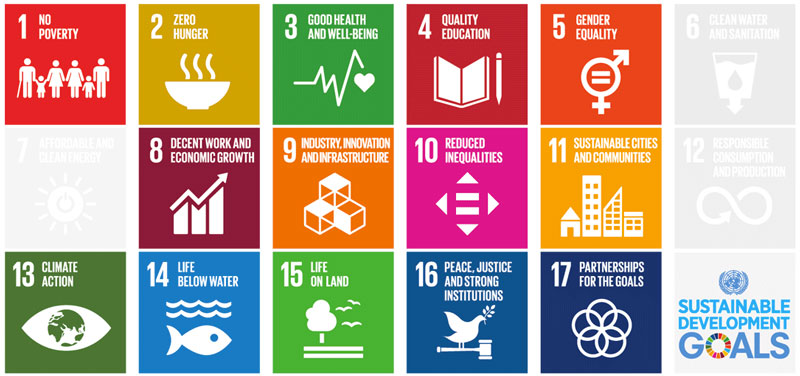
Modern Slavery
“Centuries have passed since the end of the transatlantic slave trade. Yet more than 40.3 million people remain victims of modern slavery — 5 in every 1,000 people in the world. Victims are often the most vulnerable in our societies, those suffering multiple forms of discrimination — women, children, indigenous peoples, people of African descent and persons with disabilities. Modern slavery is a blight in our world that we must eradicate,” UN Deputy Secretary-General Amina J. Mohammed.
Ending modern slavery is central to several targets of the UN Sustainable Development Goals. This session will consider how fighting modern slavery can contribute to sustainable development. Our speakers will also discuss the importance of action to ensure companies and their suppliers are not involved in harmful exploitation, the ongoing need for research and education and how partnerships with faiths, businesses, academics, NGOs, and governments around the world can end modern slavery.
Key Resources:
https://www.developingfreedom.org/
https://www.walkfree.org/projects/the-global-slavery-index/
Session Host
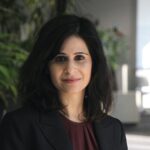 Freya Dinshaw, Senior Lawyer, Human Rights Legal Centre
Freya Dinshaw, Senior Lawyer, Human Rights Legal Centre
Freya joined the HRLC as a Senior Lawyer in 2018, where she specialises in business and human rights. Freya’s work focuses on exploring opportunities for deploying advocacy, strategic litigation and international mechanisms to challenge the treatment of vulnerable communities by governments, companies and other actors.
Freya was the 2016 International Bar Association’s Human Rights Scholar and served as Head of Advocacy for the United Nations Association of Australia (Victoria) Young Professionals Network. She also holds a community fellowship at the Melbourne Social Equity Institute at the University of Melbourne, focusing on modern slavery research.
Speakers
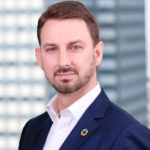 Professor James Cockayne, Visiting Fellow, UN University Centre for Policy Research
Professor James Cockayne, Visiting Fellow, UN University Centre for Policy Research
James is Head of the Secretariat for the Finance Against Slavery & Trafficking (FAST), a member of the Secretariat for the Investors Against Slavery and Trafficking Asia Pacific (IAST APAC) and a Professor of Global Politics & Anti-Slavery, University of Nottingham. James is also Chair of the Council on Foreign Relations Study Group on Human Trafficking and Fellow at the International Institute for Strategic Studies and the Geneva Centre for Security Policy. He is a member of the World Economic Forum Global Futures Council on Equity & Social Justice.
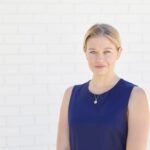 Grace Forrest, Founding Director, Walk Free, UNAA Goodwill Ambassador for Modern Slavery
Grace Forrest, Founding Director, Walk Free, UNAA Goodwill Ambassador for Modern Slavery
Since its inception in 2011, Walk Free has become one of world’s leading anti-slavery organisations, responsible for publishing the Global Slavery Index (GSI). The GSI is the world’s leading data set on measuring and understanding modern slavery, informing international law, legislation, and prevalence indicators. A crucial part of Walk Free’s work is highlighting the need for greater transparency in global supply chains to identify modern slavery.
Grace is the youngest ever United Nations Association Goodwill Ambassador for Anti-Slavery. She is on the board for the Centre for Humanitarian Dialogue, a director of the Minderoo Foundation and a founding member for the Asia Gender Network.
In 2018, Grace was awarded Nomi Network’s Abolitionist award for her work to end modern slavery and currently sits on the Board of Directors for The Freedom Fund, a leader in the global movement to end modern slavery. Grace is the 2021 Young West Australian of the Year.
 Vanessa Zimmerman, CEO, Pillar Two and Chair, Human Rights, Global Compact Network Australia
Vanessa Zimmerman, CEO, Pillar Two and Chair, Human Rights, Global Compact Network Australia
Vanessa is a recognised global corporate sustainability expert. Originally an anti-trust lawyer, she was a Legal Advisor to the UN Special Representative on Business and Human Rights. This included being part of the core team drafting the internationally recognised UN Guiding Principles on Business and Human Rights. Vanessa has also advised other key global business and human rights initiatives and worked with businesses from multiple sectors. From 2011 – 2018 Vanessa managed implementation of Rio Tinto’s human rights programme. In 2018 she founded Pillar Two, a boutique advisory firm helping business to manage their human rights risks.
Vanessa holds various expert advisory roles including as Board Member of the Global Compact Network Australia and Chair of its Human Rights workstream and Modern Slavery Community of Practice. She has been appointed to several Australian government advisory groups including Australian Border Force’s Modern Slavery Expert Advisory Group and the Governance and Advisory Board to the Australian National Contact under the OECD Guidelines for Multinational Enterprises.
Sustainable Development Goals


